- Home
- Tad Williams
The Very Best of Tad Williams Page 3
The Very Best of Tad Williams Read online
Page 3
“Yes, but you are the best judge of monstrous character,” Guldhogg said soothingly. “We all admire your judgment. We also agree your ideas are the finest and most useful.”
Blivet gave him a skeptical look. “Really?”
“Oh, absolutely. Especially when you’re not drinking too much.”
The knight scowled. “You haven’t answered my question. What monster lurks in this unhallowed place?” He shivered a little in the chilly wind that seemed to whistle out of the forest itself rather than from anywhere else.
“Some kind of she-creature,” said Guldhogg offhandedly. “I couldn’t say for certain.”
“And how can anyone care about this she-creature, out in the middle of nowhere?” Blivet looked around. “Honestly, Guldhogg, who would pay to have it dispatched? There isn’t a town within twenty furlongs of this place.” In truth, to Blivet, the dragon seemed a bit nervous. “Are you sure this is the right forest?”
“Oh, absolutely. And there are excellent reasons for you to go in there,” said Guldhogg firmly. “Absolutely, there are. I’ll explain it all later, Blivvy. Go on, now. I’ll be right here, listening. Call if you need me.”
Sir Blivet gave the dragon a last dubious look, then banged down the visor of his helmet, took his lance in his arm, and spurred forward into the trees, perhaps thinking that the sooner he could get this over with, the sooner he could get back to the companionability of an ale-cask, which required no monster-bearding as a price of friendship.
The forest was just as dire inside as it appeared from the outside, shadowed and silent, with the webs of huge but not presently visible spiders swaying in the breeze. Sir Blivet felt as if eyes were watching him at every step, and he had just about decided that he was going to return to the camp and declare the she-beast unfindable when someone called him.
“Sir Knight?”
He turned, his stomach suddenly sour with unease. A robed figure stepped from the shadows and out onto the deer track his horse had been following. “Who are you?” he asked, trying to remember the boldly fearless tone he had been able to summon easily in his younger days, before he knew any better. “Are you in need of assistance?”
“I could be,” the stranger said. “Are you Sir Guldhogg?”
“Sir Gul...” Blivet shook his head in confusion. “No. Guldhogg is a friend of mine, but...” He peered at the shrouded figure, but it was hard to make out much of the face in the hood. “I am in fact Sir Blivet, semi-fabled dragonslayer. Who are you?”
“I am the She-Creature of Haunted Forest.” The newcomer threw back her hood, revealing herself to be a quite attractive short-haired woman of mature years, slender of neck and discerning of eye.
“You are the she-creature?”
“Well, I’m really more of a witch.” She gave an embarrassed laugh. “But when I first moved here several years ago, I spread the rumor of a dangerous and deadly beast in these woods so that I would be left alone. People have a tendency to get obsessed with witches, and before you know it they’re looking you over for third nipples and hunting for kindling—you know what I mean. But I’m afraid I did the job a bit too well.” She shrugged and indicated the dark forest. “Everybody moved out. Even the people in the nearby towns all migrated in fear. So here I am.”
“So here you are.” Blivet knew it wasn’t the most sensible thing to say, but he was a bit taken aback by the unexpected fairness of the she creature’s face, and her modest but sensible speech. “But why, exactly?”
“Because I live here.” She gave him a look that suggested she did not think highly of his intellect.
“No, I mean, why am I here?” Blivet was beginning to wish he’d waited until later in the day before starting on the ale. “No, that’s not right either. What I mean is, why did you and...and Sir Guldhogg arrange this meeting?”
“Ah. Fair question.” She smiled. “Who do you think a witch’s customers are, Sir Blivet? People. You want them to fear you, to be impressed by you, but you don’t want them to actually leave, because then who is one going to make love potions for? Whose sick calves and sick babies is one going to cure? For whom is one going to tell the future with cartomancy or tea leaves?”
“Ah, I see what you mean about that, I suppose. But this meeting...”
“Guldhogg opened the negotiations by raven. A good idea, since the local lord abandoned the place along with the peasants and the forest-folk, which means I haven’t been getting a lot of mail in the old way.”
“Oh, I see,” said Blivet, who was now convinced he didn’t see anything at all. “Opened negotiations.”
“Mr. Hogg told me that you and he and the rest of your...guild? Organization? Anyway, that your lot had been offered a tidy sum of money to come and dispatch the She-Creature of Haunted Forest, and that he felt honor-bound to let me know you were on your way. So I wrote back to him and offered him a business proposition, instead.”
Ah. Now it all made a bit more sense, Blivet decided. “Business. Yes. So, have you a lot of gold?”
She laughed again. Blivet couldn’t help noticing she was actually rather pretty—in a serious, mature sort of way—and even prettier when she was amused. “Ye gods, no!” said the witch. “I haven’t a ha’penny. How would I, with all of my customers gone to Rutland County and points south? No, I haven’t got any money at all. Walk with me now, and let’s talk about this.”
Blivet dismounted, although he couldn’t quite see the sense of it. Still, he found himself willing to spend more time in the company of this attractive woman. She had a personality that wasn’t what he would have expected from a witch. “But if you haven’t any money, what are we going to talk about? I mean, business-wise?”
Now it was her turn to shake her head. “Silly man. As if gold was the only valuable thing in the world. My name is Hecate, by the way. Named after the goddess.”
“Pleased to meet you, Mistress Hecate.”
“I don’t have a cent—but I am the owner of this forest by fee simple. I did a favor for the local lord—cured his daughter of the pox—so when he moved out (well, fled, really) he gave it to me, mostly to keep me from undoing his daughter’s cure, I suspect.” She cleared her throat.
“Which means I am, as is sometimes said, cash-poor but land-rich, handsome Sir Blivet, and I would like to offer you and Sir Guldhogg a mutually beneficial alliance.”
It took them a year and a surprisingly large fraction of their savings to build a fence around the forest, which although not large was still a forest. Workers had to be trucked in by wagon for all the jobs that couldn’t be performed by redcaps and hunkypunks. Then they needed another year for clearing and building, with the result that the Dark Ages had almost ended by the day the grand opening finally arrived.
“I still don’t think it’s fair,” the dragon was saying in a sullen tone. “After all, it was my idea. I led you to each other. I arranged it all, more or less. And you’re still going to call it Blivetland?”
“Don’t sulk, Guldhogg,” said Hecate. “You haven’t seen the surprise yet.”
“He’s always that way,” said Sir Blivet. “He doesn’t drink, either.”
“And neither should you,” said Guldhogg, still grumpy.
“Don’t be mean, Guldy,” the witch said. “My Blivvy’s been very abstemious lately.”
“Too bloody busy to be anything else,” the knight agreed. “Do you know how much work it was just setting up the concession stands and teaching boggarts to count?”
“Well, it was either that or putting them on display, and you know what they did when we tried that. We can’t have them flinging boggart dung at the paying customers, can we?”
“Well, I think it’s time for us to get out and meet the public,” Blivet said. “Come on, Guldhogg. I’ve got something to show you.”
Considering how deserted this entire stretch of the north had been only a couple of short years ago, it was quite impressive to see the crowds lined up hundreds deep all along the great fen
ce, waiting to enter through the massive front gate. The dragon was all for letting them in immediately—“Money is burning a hole in their pockets, Blivet!”—but the knight forbade it until a last chore had been done.
“Just pull this rope,” he told the dragon. “Go on, old chum, take it in your mouth and yank.”
Guldhogg, who had been gazing with keen regret at the carved wooden sign over the gate, the one that read “Blivetland,” shrugged his wings and pulled on the rope. An even larger sign, this one painted on canvas, rolled down to hang in plain view of the entire assembly.
“Oh,” said Guldhogg, sounding quite overcome. “Oh, is that...is that really...?”
“Yes, silly, it’s you,” said Hecate, elbowing him in his substantial, scale-covered ribs. “Well, except we’re calling you ‘Guldy Hogg,’ because it sounds friendlier.” She and Blivet and Guldhogg looked up at the gigantic sign rippling in the spring breeze, with its huge and colorful painted representation of Guldhogg himself, face stretched in a friendly grin. “It’s everywhere, you know,” she said.
“What is?”
“Your picture, silly. You’re the ofcial mascot of Blivetland. We have Guldy Hogg souvenir tunics, tea towels—even hats!” She took one of the latter from behind her back and handed it to Sir Blivet, who put it on with only the smallest show of reluctance. The protruding nostrils of the dragon face on the hat looked almost like the round ears of some bizarre rodent. “It’s a wonderful likeness, Guldy!” cried Hecate. “So handsome!”
As Guldhogg stared at his own face perched atop his friend’s head, the gates of Blivetland opened and the first crowd of paying customers pushed their way in, hurrying forward into the forest to see Griffin Island and Nessie’s Cove and ride on Guldy Hogg’s Wild Wing Ride, which consisted of large tubs whirling around on ropes, the whole thing powered by Ljotunir the ogre spinning a sizeable potter’s wheel assembly with his strong and astoundingly ugly feet. Excited people seemed already to have filled every festive corner of the forest, and the vendors were already selling small beer and goblin goodies hand over fist.
The sound of money clinking into Blivetland’s coffers put the three founders in a very benign mood.
“Isn’t this better than tramping around the country?” asked Hecate. “We stay here and the country comes to us!”
“But I thought I was going to be allowed to retire,” growled Sir Blivet. “Instead, you will work me into my quickly approaching grave.”
“Nonsense. You and Guldy only have to put on two brief shows a day—well, three on Saturdays—and he’s the one who has to do all the costume changes, pretending to be all the other dragons you slew.”
“They were all him anyway!” the knight protested.
“Well, everyone loves to see the two of you. It wouldn’t be the Merriest Place on Ye Olde Earth if you pair weren’t pretending to try to kill each other at one and four every afternoon.” She leaned over and kissed Blivet’s whiskery cheek. “And just think—no more traveling!”
After that, Guldhogg decided he wanted to try a funnel cake, so they set off toward the Faerie Food Courte together—the knight, his lady, and his best friend. The sounds of fable being turned into coin rose all around them, a seemingly basic exchange but with an additional dividend of happiness to all parties. Even in the tenth century, that made for a pretty good state of affairs.
The Storm Door
Nightingale did not take the first cab he saw when he stepped out into the rainy San Francisco streets. He never did. Some might call it superstition, but in his profession the line between “superstitions” and “rules of survival” was rather slender. He stepped back onto the curb to avoid the spray of water as the second cab pulled up in response to his wave. Paranormal investigators didn’t make enough money to ruin a pair of good shoes for no reason.
Somebody should have warned me that saving the world from unspeakable horrors is like being a teacher—lots of job satisfaction, but the money’s crap.
“Thirty-three Gilman Street,” he told the driver, an ex-hippie on the edge of retirement age, shoulder-length gray hair draggling out from under his Kangol hat and several silver rings on the fingers holding the wheel. “It’s off Jones.”
“You got it.” The driver pulled back into traffic, wipers squeaking as city lights smeared and dribbled across the glass beside Nightingale’s head. “Helluva night,” he said. “I know we need the rain and everything, but...shit, man.”
Nathan Nightingale had spent so much of the past week in a small, overheated, and nearly airless room that he would have happily run through this downpour naked, but he only nodded and said, “Yeah. Helluva night.”
“Gonna be a lot more before it’s over, too. That’s what they said. The storm door’s open.” The driver turned down the music a notch. “Kind of a weird expression, huh? Makes it sound like they’re...” he lifted his fingers in twitching monster-movie talons, “coming to get us. Whooo! I mean, it’s just clouds, right? It’s nature.”
“This? Yeah, it’s just nature,” agreed Nightingale, his thoughts already drawn back to that small room, those clear, calm, terrifying eyes. “But sometimes even nature can be unnatural.”
“Huh? Oh, yeah, I guess so. Good one.” But it was clear by his tone that the driver feared he’d missed the point.
“That’s it—the tall house there.”
The driver peered out the window. “Whoa, that’s a spooky one, man. You sure you gonna be okay, man? This is kind of a tough neighborhood...”
“I’ll be fine, thanks,” said Nightingale. “I’ve been here before—it was kind of my second home.”
“If you say so.” The driver called just before Nightingale slammed the door, “Hey, remember about that storm door. Better get an umbrella!”
Nightingale raised his hand as the man drove off. An umbrella. He almost smiled, but the wet night was getting to him. If only all problems were that easy to solve.
As he pressed the button beside the mailbox lightning blazed overhead, making it seem as though one had caused the other. A moment later the thunder crashed down, so near that he did not hear the sound of the door being buzzed open but felt the handle vibrating under his hand.
The light was out in the first-floor stairwell, and no lights were on at all on the second floor, what Uncle Edward called “the showroom,” although no one ever saw it but a few old, trusted collector friends. Enough of the streetlight’s glow leaked in that Nightingale could see the strange silhouettes of some of the old man’s prize possessions, fetish dolls and funerary votives and terra cotta tomb statuettes, a vast audience of silent, wide-eyed shapes watching Nightingale climb the stairs. It was an excellent collection, but what made it truly astounding were the stories behind the pieces, most of them dark, many of them horrifying. In fact, it had been his godfather’s arcane tales and bizarre trophies that had first lured Nightingale onto his odd career path: at an age when most boys wanted to be football players or firemen, young Nate had decided he wanted to hunt ghosts and fight demons. Later, when others were celebrating their first college beer-busts, Nightingale had already attended strange ceremonies on high English moors and deep in Thai jungles and Louisiana bayous. He had heard languages never shaped for the use of human tongues, had seen men die for no reason, and others live when they should have been dead. But through the years, when the unnatural things he saw and felt and learned overwhelmed him, he always came back here for his godfather’s advice and support. This was one of those times. In fact, this was probably the worst time he could remember.
Strangely, the third floor of the house was dark, too.
“Edward? Uncle Edward? It’s me, Nathan. Are you here?” Had the old man forgotten he was coming and gone out with his caretaker Jenkins somewhere? God forbid, a medical emergency...Nightingale stopped to listen. Was that the quiet murmuring of the old man’s breathing machine?
Something stirred on the far side of the room and his hackles rose; his hand strayed to his inside coat p
ocket. A moment later the desk lamp clicked on, revealing the thin, lined face of his godfather squinting against the sudden light. “Oh,” Edward said, taking a moment to find the air to speak. “Guh-goodness! Nate, is that you? I must have dozed off. When did it get so dark?”
Relieved, Nightingale went to the old man and gave him a quick hug, being careful not to disturb the tracheotomy cannula or the ventilator tubes. As always, Edward Arvedson felt like little more than a suit full of bones, but somehow he had survived in this failing condition for almost a decade. “Where’s Jenkins?” Nightingale asked. “It gave me a start when I came up and the whole house was dark.”
“Oh, I had him take the night off, poor fellow. Working himself to death. Pour me a small sherry, will you, there’s a good man, and sit down and tell me what you’ve learned. There should be a bottle of Manzanilla already open. No, don’t turn all those other lights on. I find I’m very sensitive at the moment. This is enough light for you to find your way to the wet bar, isn’t it?”
Nightingale smiled. “I could find it without any light at all, Uncle Edward.”
When he’d poured a half glass for the old man and a little for himself as well, Nightingale settled into the chair facing the desk and looked his mentor up and down. “How are you feeling?”
Arvedson waved a dismissive hand. “Fine, fine. Never felt better. And now that we’re done with that nonsense, tell me your news, Nate. What happened? I’ve been worrying ever since you told me what you thought was happening.”
“Well, it took me a while to find a volunteer. Mostly because I was trying to avoid publicity—you know, all that ‘Nightingale—Exorcist to the Stars’ nonsense.”
“You shouldn’t have changed your name—it sounds like a Hollywood actor now. Your parents wouldn’t have approved, anyway. What was wrong with Natan Näktergal? It was good enough for your father.”

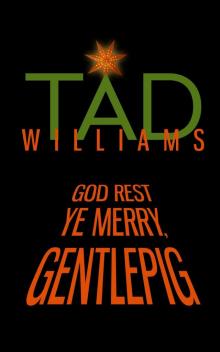 God Rest Ye Merry, Gentlepig
God Rest Ye Merry, Gentlepig Tailchaser's Song
Tailchaser's Song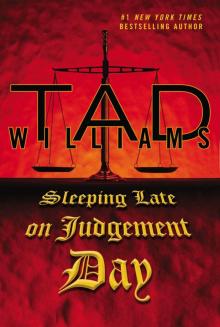 Sleeping Late on Judgement Day
Sleeping Late on Judgement Day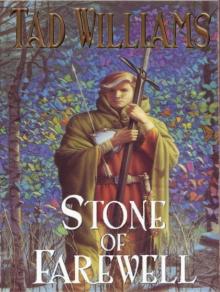 Stone of Farewell
Stone of Farewell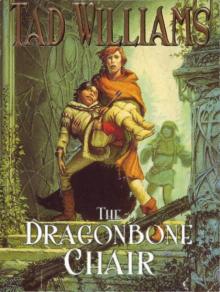 The Dragonbone Chair
The Dragonbone Chair Sea of Silver Light
Sea of Silver Light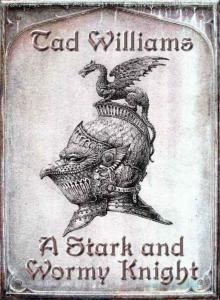 A Stark and Wormy Knight
A Stark and Wormy Knight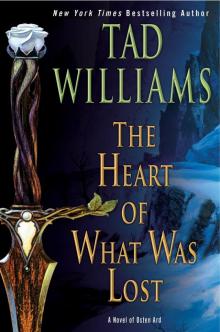 The Heart of What Was Lost
The Heart of What Was Lost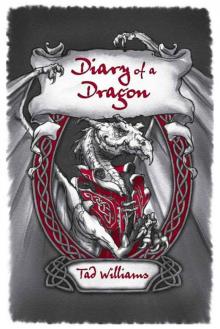 Diary of a Dragon
Diary of a Dragon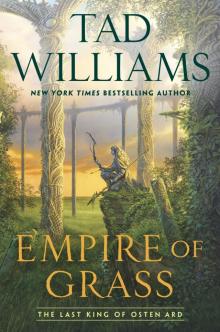 Last King of Osten Ard 02 - Empire of Grass
Last King of Osten Ard 02 - Empire of Grass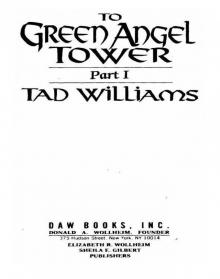 To Green Angel Tower, Volume 1
To Green Angel Tower, Volume 1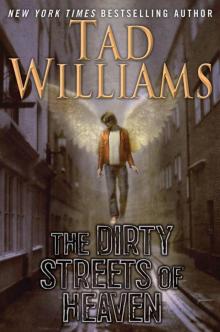 The Dirty Streets of Heaven
The Dirty Streets of Heaven River of Blue Fire
River of Blue Fire The Very Best of Tad Williams
The Very Best of Tad Williams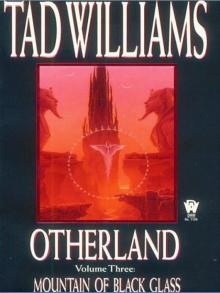 Mountain of Black Glass
Mountain of Black Glass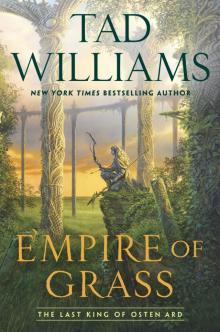 Empire of Grass
Empire of Grass City of Golden Shadow
City of Golden Shadow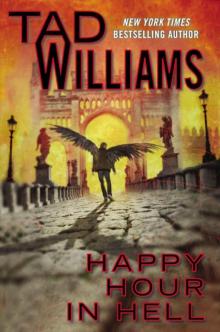 Happy Hour in Hell
Happy Hour in Hell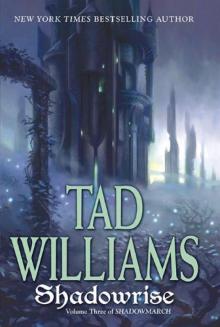 Shadowrise
Shadowrise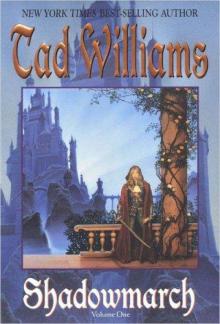 Shadowmarch
Shadowmarch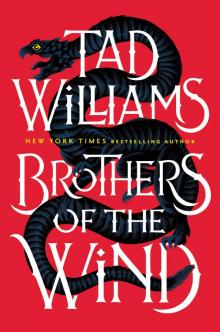 Brothers of the Wind
Brothers of the Wind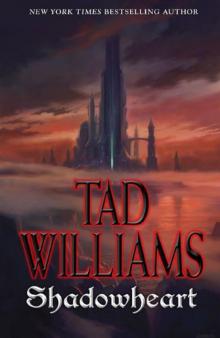 Shadowheart
Shadowheart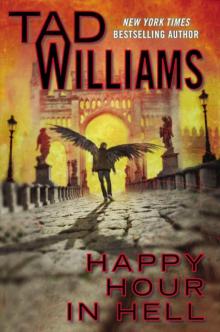 Bobby Dollar 02 - Happy Hour In Hell
Bobby Dollar 02 - Happy Hour In Hell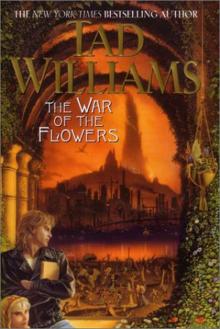 The War of the Flowers
The War of the Flowers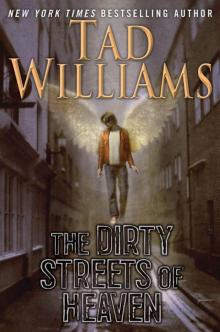 The Dirty Streets of Heaven bd-1
The Dirty Streets of Heaven bd-1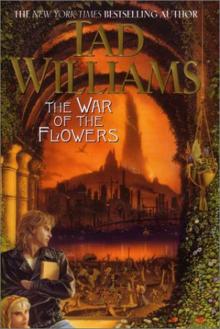 Tad Williams - The War of the Flowers (retail) (pdf)
Tad Williams - The War of the Flowers (retail) (pdf) Shadowheart s-4
Shadowheart s-4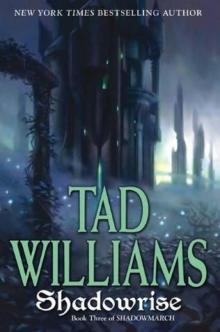 Shadowrise s-3
Shadowrise s-3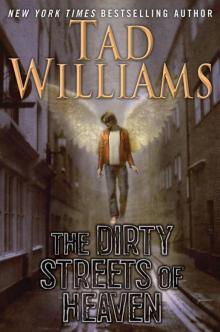 The Dirty Streets of Heaven: Volume One of Bobby Dollar
The Dirty Streets of Heaven: Volume One of Bobby Dollar The Stone of Farewell
The Stone of Farewell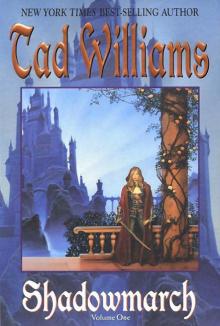 (Shadowmarch #1) Shadowmarch
(Shadowmarch #1) Shadowmarch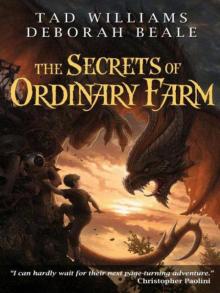 The Secrets of Ordinary Farm of-2
The Secrets of Ordinary Farm of-2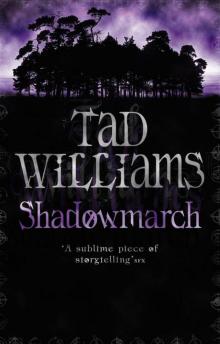 Shadowmarch s-1
Shadowmarch s-1![Bobby Dollar [04] God Rest Ye Merry, Gentlepig Read online](http://i1.bookreadfree.com/i1/04/06/bobby_dollar_04_god_rest_ye_merry_gentlepig_preview.jpg) Bobby Dollar [04] God Rest Ye Merry, Gentlepig
Bobby Dollar [04] God Rest Ye Merry, Gentlepig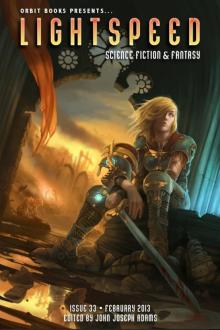 Lightspeed Issue 33
Lightspeed Issue 33 Sea of Silver Light o-4
Sea of Silver Light o-4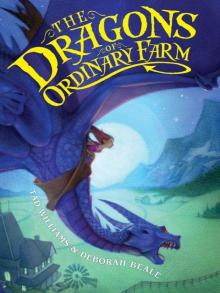 The Dragons of Ordinary Farm of-1
The Dragons of Ordinary Farm of-1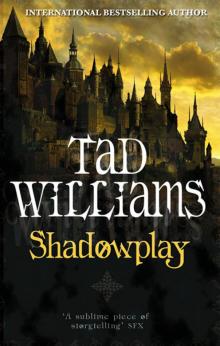 Shadowplay s-2
Shadowplay s-2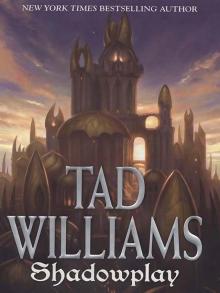 (Shadowmarch #2) Shadowplay
(Shadowmarch #2) Shadowplay